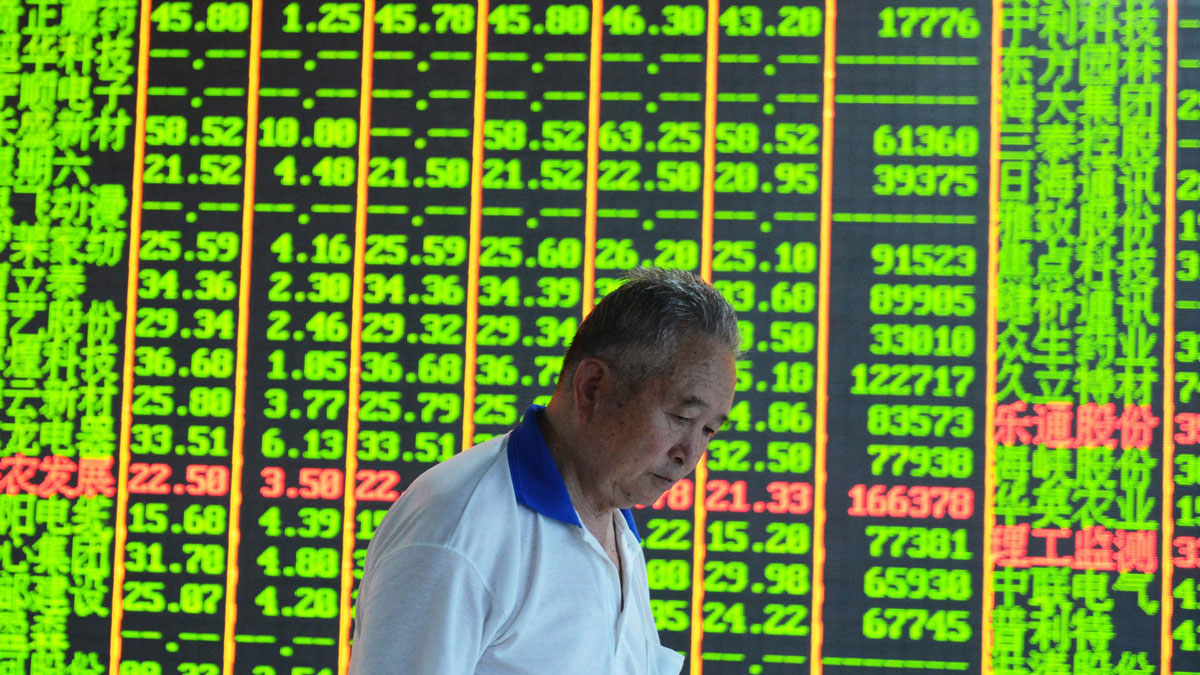China stocks rise four sessions in a row after turbulence
Beijing could protect investors by creating modern capital market, says former US Treasury secretary

China stocks have risen for four sessions in a row, offering hope for investors that the market has bottomed out after the recent turbulence.
The Shenzhen index increased 1.6 per cent to 2265.1 on Tuesday, up 20.2 per cent since 8 July, but still down 27.9 per cent from its peak in June. The Shanghai Composite Index increased 0.6 per cent to 4017.67, up 14.6 per cent from its recent low, but still 22.2 per cent below its peak last month.
As the market dust settles, analysts have been assessing the causes behind the volatility and its potential impact on the country's economy.
The Week
Escape your echo chamber. Get the facts behind the news, plus analysis from multiple perspectives.

Sign up for The Week's Free Newsletters
From our morning news briefing to a weekly Good News Newsletter, get the best of The Week delivered directly to your inbox.
From our morning news briefing to a weekly Good News Newsletter, get the best of The Week delivered directly to your inbox.
Earlier in the year, China's share market was regarded as one of the best performing in Asia, but it began to plummet in mid-June. On 8 July, the Shanghai Composite dropped by as much as 8 per cent, with some analysts renaming the day Black Wednesday.
According to the BBC, around 85 per cent of investors are individuals, not finance professionals, spurred on by government policies that make it easier to borrow money to invest. But just as investors followed their friends and family into the stock market, in June they began to follow them out. "That herd mentality can exaggerate market moves very swiftly," says the BBC.
In a bid to prop up the markets, Beijing regulators quickly intervened with a number of emergency measures, such as blocking investors with more than 5 per cent stakes from selling their shares for the next six months. Finally the market began to calm.
China's heavily-manipulated stock market is not an especially big proportion of the country's economy, but with so many retail investors a collapse of share prices affects people's savings, incomes and welfare, writes Henry Paulson, former US Treasury secretary, in the Financial Times.
Beijing's instinct to protect investors is "understandable", but the best way of doing so is to create a modern capital market, says Paulson, which means allowing the "best-in-class" financial institutions and professionals, irrespective of national origin, to serve Chinese investors. "Exposing companies to serious competition will sort out the best institutions from underperforming ones," he says.
For more information on investments, please click here
A free daily email with the biggest news stories of the day – and the best features from TheWeek.com
-
 The ‘ravenous’ demand for Cornish minerals
The ‘ravenous’ demand for Cornish mineralsUnder the Radar Growing need for critical minerals to power tech has intensified ‘appetite’ for lithium, which could be a ‘huge boon’ for local economy
-
 Why are election experts taking Trump’s midterm threats seriously?
Why are election experts taking Trump’s midterm threats seriously?IN THE SPOTLIGHT As the president muses about polling place deployments and a centralized electoral system aimed at one-party control, lawmakers are taking this administration at its word
-
 ‘Restaurateurs have become millionaires’
‘Restaurateurs have become millionaires’Instant Opinion Opinion, comment and editorials of the day